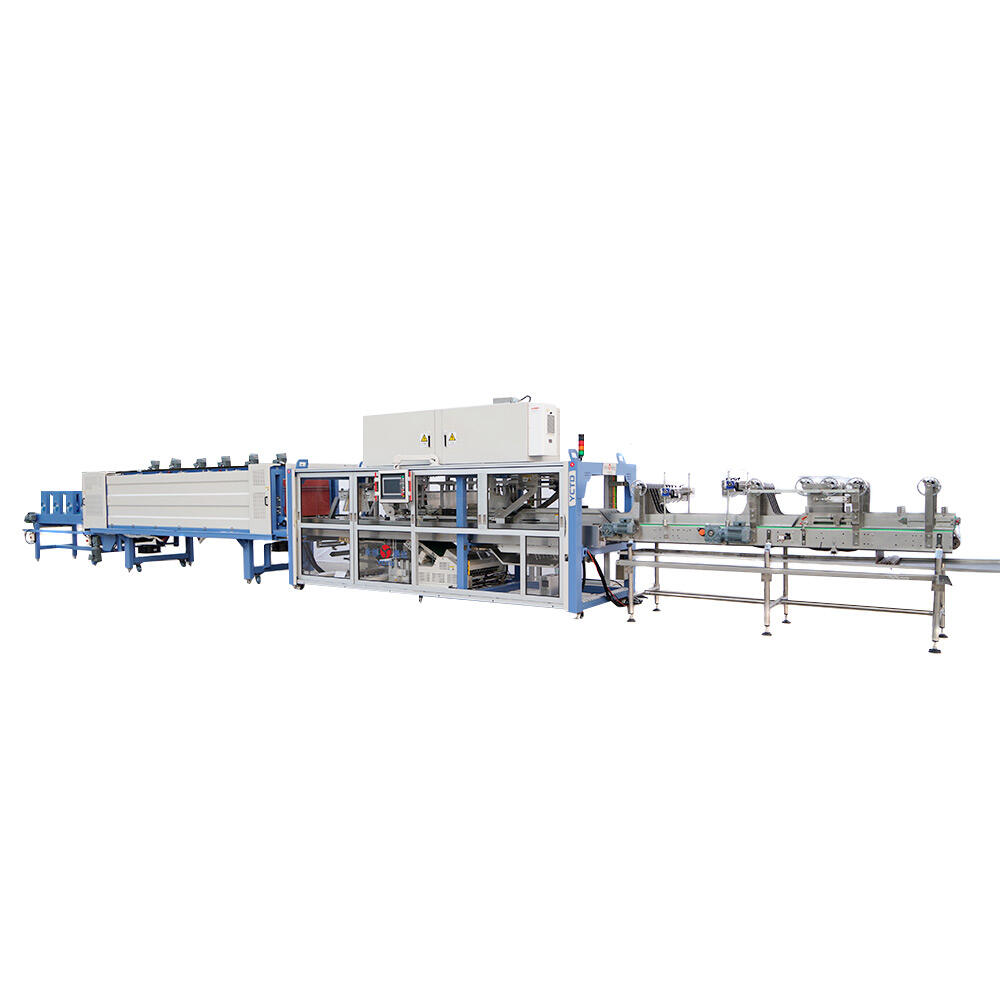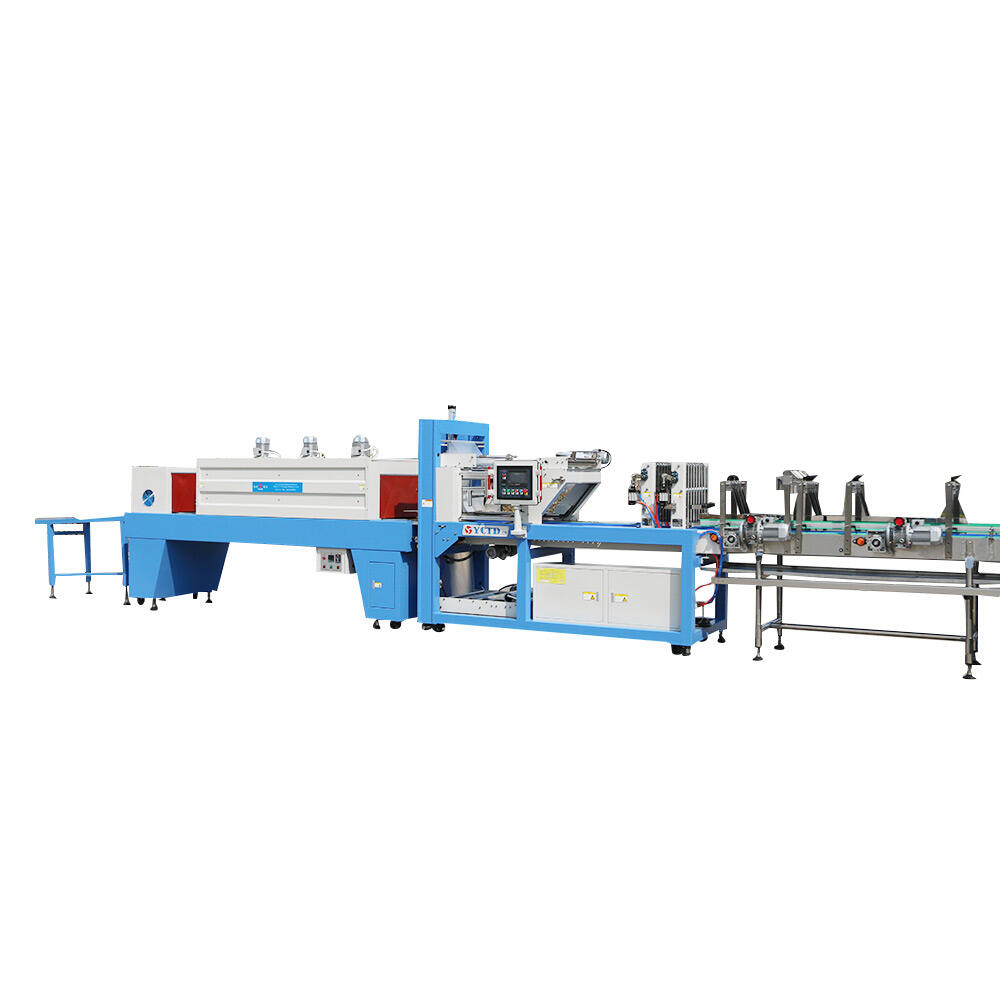Revolutionizing Factory Automation with Modern Case Packing Solutions
The manufacturing landscape has evolved dramatically over the past decades, with automation taking center stage in optimizing production processes. At the heart of this evolution lies the case packer, a sophisticated piece of machinery that has transformed how factories handle product packaging and distribution. These innovative systems have become indispensable in modern manufacturing facilities, offering a perfect blend of efficiency, precision, and reliability.
Today's manufacturing facilities face increasing pressure to maintain high production rates while ensuring consistent quality and reducing operational costs. A case packer addresses these challenges head-on by automating one of the most labor-intensive aspects of the production line - product packaging. By understanding the significant advantages these machines bring to factory operations, businesses can make informed decisions about implementing this technology to enhance their packaging processes.
Operational Excellence and Productivity Gains
Speed and Efficiency Improvements
When it comes to packaging operations, the case packer stands out as a game-changing solution. These machines can process hundreds of products per minute, far exceeding what manual packaging operations can achieve. Modern case packers are designed to handle various product sizes and packaging configurations, maintaining consistent speed without compromising accuracy.
The automated nature of case packing systems eliminates bottlenecks in the production line. While human operators might need breaks or slow down during long shifts, a case packer maintains its optimal performance throughout the production run. This sustained efficiency translates to higher daily output and improved production planning capabilities.
Labor Cost Reduction
One of the most significant advantages of implementing a case packer is the substantial reduction in labor costs. By automating the packaging process, factories can reassign workers to more value-added tasks that require human intelligence and decision-making. This not only optimizes the workforce but also creates opportunities for employees to develop new skills in machine operation and maintenance.
The reduction in manual labor requirements also addresses the growing challenge of labor shortages in the manufacturing sector. As skilled workers become harder to find and retain, automated solutions like case packers ensure production continuity and consistent output levels.

Quality and Consistency Benefits
Enhanced Product Protection
A case packer ensures that products are handled with precision and care throughout the packaging process. The automated system's controlled movements and standardized procedures significantly reduce the risk of product damage during packaging. This is particularly crucial for delicate items or products with specific handling requirements.
The consistency in packaging quality also extends to the arrangement of products within cases. Modern case packers utilize advanced sensors and control systems to maintain proper product orientation and spacing, resulting in optimally packed cases that protect products during storage and transportation.
Standardization and Error Reduction
Human error is virtually eliminated when using a case packer, as these machines follow precise programming for each packaging configuration. This standardization ensures that every case meets exact specifications, from product count to arrangement patterns. The result is uniformly packed cases that optimize storage space and simplify logistics operations.
Quality control becomes more manageable with automated case packing, as variations in packaging quality are minimized. This consistency helps maintain brand standards and customer satisfaction while reducing returns and complaints related to packaging issues.
Operational Cost Management
Material Optimization
Case packers are designed to maximize the efficiency of packaging material usage. These machines calculate and execute the most efficient way to pack products, minimizing waste and optimizing case utilization. The precise control over material consumption leads to significant cost savings in packaging supplies over time.
Advanced case packing systems can also adapt to different case sizes and configurations, allowing manufacturers to optimize packaging based on product dimensions and market requirements. This flexibility helps reduce storage space requirements and shipping costs through better space utilization.
Maintenance and Longevity
Modern case packers are built for durability and reliable operation, with minimal maintenance requirements compared to manual packaging systems. The initial investment in a case packer is offset by its long operational life and reduced maintenance costs over time. Regular preventive maintenance schedules help ensure consistent performance and minimize unexpected downtime.
The modular design of many case packing systems allows for easy upgrades and modifications as packaging requirements evolve. This adaptability extends the machine's useful life and provides a better return on investment for manufacturing facilities.
Safety and Compliance Advantages
Workplace Safety Enhancement
Implementing a case packer significantly improves workplace safety by reducing the physical strain on workers associated with repetitive packaging tasks. The automation of heavy lifting and repetitive motions helps prevent workplace injuries and reduces the risk of repetitive strain injuries that can occur in manual packaging operations.
Modern case packers are equipped with advanced safety features and emergency stop systems that protect operators and maintenance personnel. These safety measures ensure compliance with workplace safety regulations while maintaining efficient production flow.
Regulatory Compliance
Case packers help manufacturers maintain consistent compliance with industry regulations and standards. The automated system's precise control over packaging parameters ensures that products are packed according to specified requirements, making it easier to meet various regulatory guidelines and quality standards.
Documentation and traceability features in modern case packing systems also support compliance efforts by maintaining detailed records of packaging operations. This data helps in quality audits and regulatory inspections while providing valuable insights for process improvement.
Frequently Asked Questions
How long does it take to integrate a case packer into an existing production line?
The integration time for a case packer typically ranges from a few days to several weeks, depending on the complexity of the production line and the specific requirements. This includes installation, testing, and operator training. Most manufacturers provide comprehensive support during the integration process to ensure smooth implementation and minimal disruption to existing operations.
What types of products can be handled by a case packer?
Case packers are highly versatile and can handle a wide range of products, including bottles, cans, pouches, cartons, and various other packaged items. Modern systems can be configured to handle multiple product sizes and packaging formats, making them suitable for diverse manufacturing applications.
How does a case packer contribute to sustainability goals?
Case packers support sustainability initiatives through reduced material waste, optimized packaging designs, and energy-efficient operation. The precise control over packaging materials and the ability to maximize case utilization helps reduce the environmental impact of packaging operations while supporting corporate sustainability objectives.

